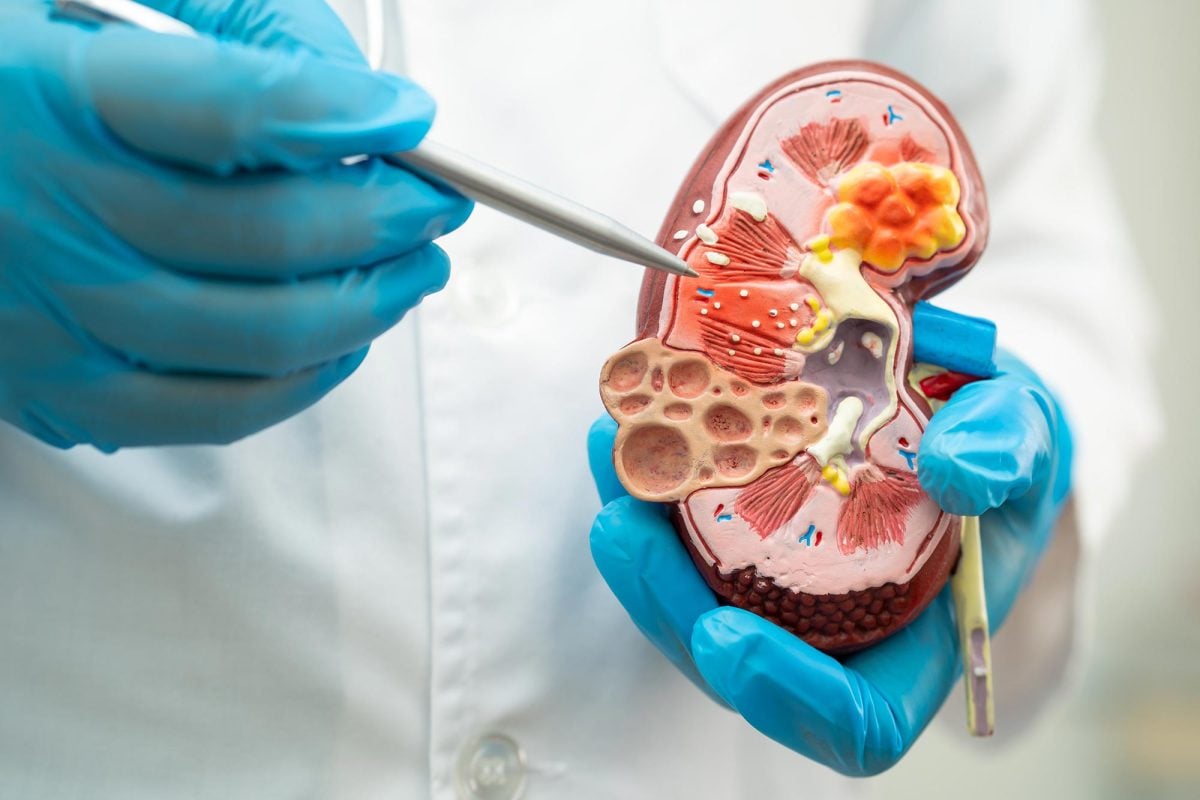The Centers for Disease Control and Prevention (CDC) estimates that more than 1 in 7 American adults has chronic kidney disease (CKD). This equates to 35.5 million people, or 14% of the population. Alarmingly, 90% of those affected are unaware of their condition. CKD occurs when kidneys become damaged over time and can't filter blood effectively, causing fluid and toxins to build up in the body. This increases the risk of heart disease and stroke.
Doctors say some common "healthy" habits may be silently harming your kidneys.
Consuming too much protein
This is the "healthy" habit most often cited by experts for its potential to harm kidneys, especially with the increasing use of protein-rich drinks in workout regimens. "Eating double or triple the recommended amount of protein won't help you build more muscle; it will only overwork your kidneys," says urologist David Shusterman.
A 2020 study in the Journal of the American Society of Nephrology (JASN) linked high-protein diets to an increased incidence of CKD, as the kidneys filter protein from the blood. Over time, this burden can lead to serious problems.
Nephrologist Tim Pflederer, Chief Medical Officer of Evergreen Nephrology, adds that animal protein is especially risky for those already diagnosed with CKD. Pflederer recommends switching from animal protein to plant-based protein sources like beans, soy, nuts, and whole grains such as quinoa and lentils.
A 2021 study in the journal Nutrients concluded that vegetarian diets can help the body better manage CKD complications. Shusterman suggests monitoring protein intake: "Aim for about 0.8-1 grams of protein per kilogram of body weight daily, unless otherwise directed by your doctor."
 |
Illustrative photo: SciTech Daily |
Taking supplements
Doctors warn that some popular supplements can silently damage kidneys, especially at high doses. For example, turmeric, vitamin C, or calcium can lead to kidney stones, while vitamin D poses risks for individuals with CKD. Overuse is increasingly common, given the multi-billion dollar supplement market in the US, which isn't strictly regulated by the FDA before products hit the shelves.
"Vitamin D supplements can interact with aluminum-containing phosphate binders, which are often used to lower blood phosphate levels in CKD patients," explains pharmacist HaVy Ngo-Hamilton, a clinical consultant at BuzzRx. "As a result, vitamin D can increase aluminum levels to harmful levels in these individuals."
Moreover, potassium supplements can also be dangerous. Concerningly, some herbal supplements also contain potassium, which may go unnoticed. "People with CKD, especially those on dialysis, must carefully control their daily potassium intake to prevent its accumulation in the blood," adds a member of the American College of Clinical Pharmacy (ACCP).
Drinking detox teas
Detox teas are advertised as removing toxins and waste while promoting weight loss. However, there's little scientific evidence to support this. Shusterman states these products can even harm kidneys.
Firstly, these teas contain diuretics, increasing urination (hence the rapid "weight loss"). This can lead to dehydration and electrolyte imbalances, both stressing the kidneys. Detox teas also often contain unregulated herbal ingredients, such as licorice root and senna leaf, both harmful to the kidneys.
"The best detox is the machinery your body already has: your kidneys," says Shusterman. "Support them with whole foods, fiber, and adequate water. Skip the fads and trust your biology."
Drinking too much water
It's entirely possible to overhydrate, especially by consuming a large volume of water in a short period. Kidneys balance water and electrolytes (like sodium), but they can only process about 0.8 to 1.0 liters of water per hour. Drinking faster than the kidneys can filter can dilute blood electrolytes.
"Drinking too much water can lead to a condition called hyponatremia, a dangerous drop in blood sodium levels," says Kristin Koskinen, a registered dietitian in Richland, Washington.
She explains that sodium, a key electrolyte, acts as the body's "traffic controller," regulating water distribution and the amount sent to the bladder. "While water intoxication is relatively rare, it can occur if you drink more than your body can excrete," Koskinen says.
Shusterman adds that the general rule is to drink when thirsty. He also points out that urine should be pale yellow if you're adequately hydrated.
Using NSAID pain relievers
Nonsteroidal anti-inflammatory drugs (NSAIDs) like aspirin, ibuprofen (Advil, Motrin), and naproxen (Aleve) are over-the-counter medications used to reduce pain, inflammation, and fever. Because they are non-addictive and easily accessible, many people use them without a second thought. However, overuse of NSAIDs is "the fastest path to kidney stress," says Shusterman.
He advises using pain relievers only when absolutely necessary. "For everyday aches and pains, your best medicine is stretching, adequate sleep, and hydration. Ice and heat packs can work wonders without posing risks to your kidneys."
Binh Minh (According to Best Life)












